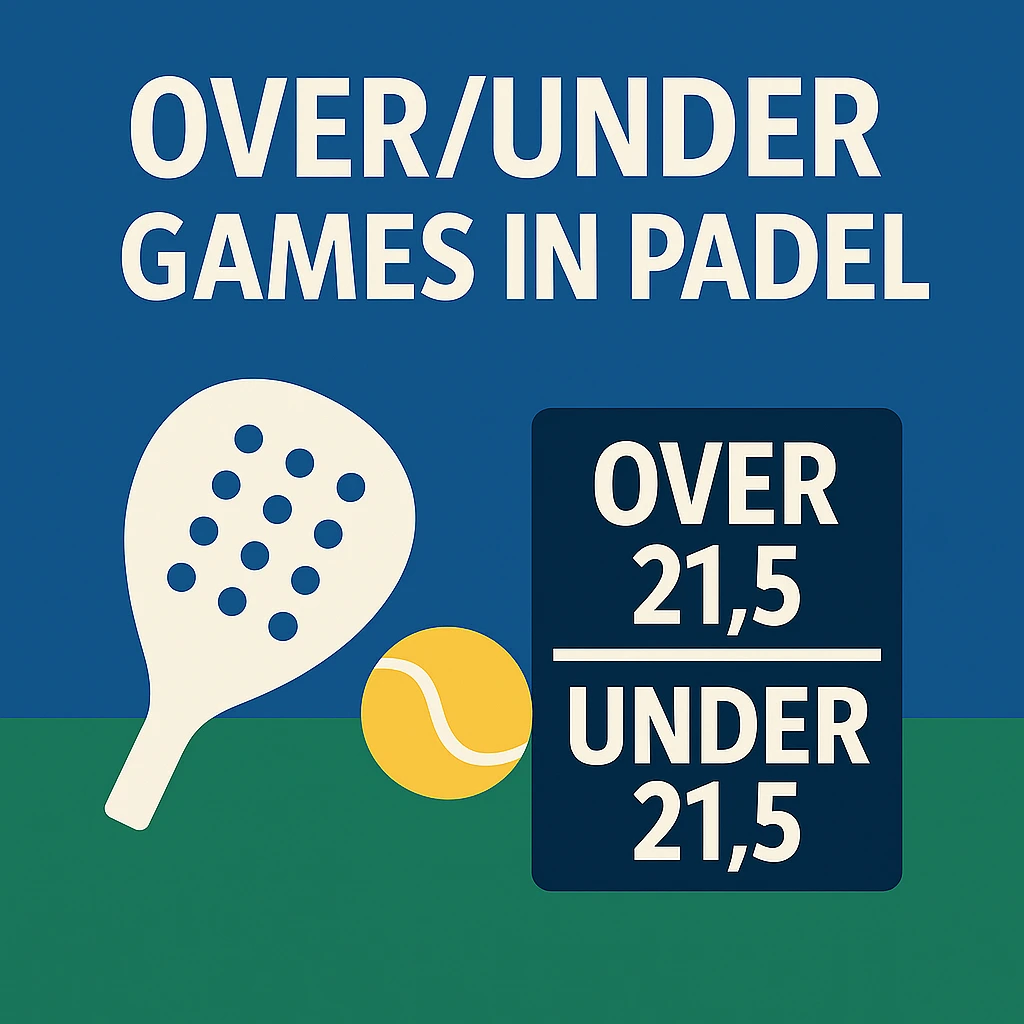The Ultimate Guide to Padel Betting

The Over/Under (Totals) market is one of the most popular & profitable padel betting options. Instead of predicting who wins the match, you simply predict how long the match will be — measured by the total number of games.
This guide explains how totals work, how bookmakers set the lines & the best strategies for using Over/Under bets effectively.
What Are Over/Under (Totals) Bets?
An Over/Under bet predicts whether the total number of games in a padel match will be:
- Over a set line, or
- Under that line
Example line: 21.5 games
- If you bet Over 21.5, the match must reach 22+ games.
- If you bet Under 21.5, the match must finish with 21 or fewer games.
You don’t need to choose the winner — only the match length.
Common Padel Totals Lines
Typical lines you’ll see:
- 19.5 games
- 20.5 games
- 21.5 games
- 22.5 games
- 23.5 games (for tight, high-level matches)
Lower lines often indicate:
- A mismatch
- Fast indoor courts
- Aggressive high-power teams
Higher lines suggest:
- Evenly matched pairs
- Defensive lobbing styles
- Outdoor conditions
How Bookmakers Set Totals
Bookmakers analyze:
- Player form
- Playing styles
- Indoor/outdoor conditions
- Previous matchups
- Average games per match for each pair
Totals lines reflect expected match duration — not just strength differences.
When to Bet the OVER
Bet the Over when conditions favour longer matches.
✔ 1. When Both Teams Hold Serve Well
Stable service games extend sets.
✔ 2. When Both Pairs Are Defensive
Defensive teams:
- Lob more
- Extend rallies
- Avoid risky smashes
This leads to long sets.
✔ 3. Outdoor Matches With Low Wind
Outdoors slows the game & reduces easy winners.
✔ 4. Evenly Matched Rankings
Close rankings → long, competitive matches.
✔ 5. When Head-to-Heads Are Consistently Tight
Historical matchups are a huge indicator.
When to Bet the UNDER
Bet the Under when conditions favour shorter matches.
✔ 1. Indoor Fast Courts
Faster surfaces → more winners → fewer games.
✔ 2. One Team Is Significantly Stronger
Dominant favourites often win 6–2, 6–3 or similar.
✔ 3. Smash-Heavy Teams Indoors
Aggressive pairs can shorten rallies dramatically.
✔ 4. Pairs With High Unforced Error Rates
Error-prone matches end quicker.
✔ 5. A Pair Is Tactically Outmatched Outdoors
For example, smash-heavy teams struggling in windy conditions.
Live Over/Under Betting
Live totals shift quickly.
🔥 Best moments to bet Overs live:
- After an early break creates a close-set comeback battle
- When both teams are holding serve consistently
- When rallies are long & defensive
🔥 Best moments to bet Unders live:
- After a dominant first set by a favourite
- When one team is visibly fatigued
- When unforced errors are rising sharply
Live totals often misprice early momentum.
How to Read Totals Using Score Patterns
Patterns that indicate Overs:
- 4–4 or 5–5 scorelines
- Frequent deuce games
- Long baseline rallies
- Balanced net play
Patterns that indicate Unders:
- 3–0 or 4–1 starts
- One team dominating the net
- High first-serve success for favourites
- Rapid games with quick points
Advanced Totals Strategy: Court Speed & Weather
Court speed affects smash success & rally length:
Fast indoor courts → UNDER
- Quick volleys
- Easy winners
Slow outdoor courts → OVER
- Longer points
- More defensive lobs
- Reduced smash effectiveness
Weather also matters:
- Wind = more errors → UNDER
- Humidity = slower play → OVER
Common Mistakes
Avoid:
- Betting Overs only because teams are “good”
- Ignoring indoor vs outdoor
- Forgetting head-to-head trends
- Betting Unders when both teams play defensively
- Overreacting to the first few games
Totals require context — not emotion.
Summary
Over/Under betting is about predicting match length, not match winners.
Bet OVER when matches are likely to be close, defensive, or outdoors. Bet UNDER when matches are fast, one-sided, or indoors.
Understanding playing styles, conditions & momentum allows you to exploit totals more effectively than almost any other padel market.
This page directly supports the handicap, in-play & match analysis guides later in the category.



